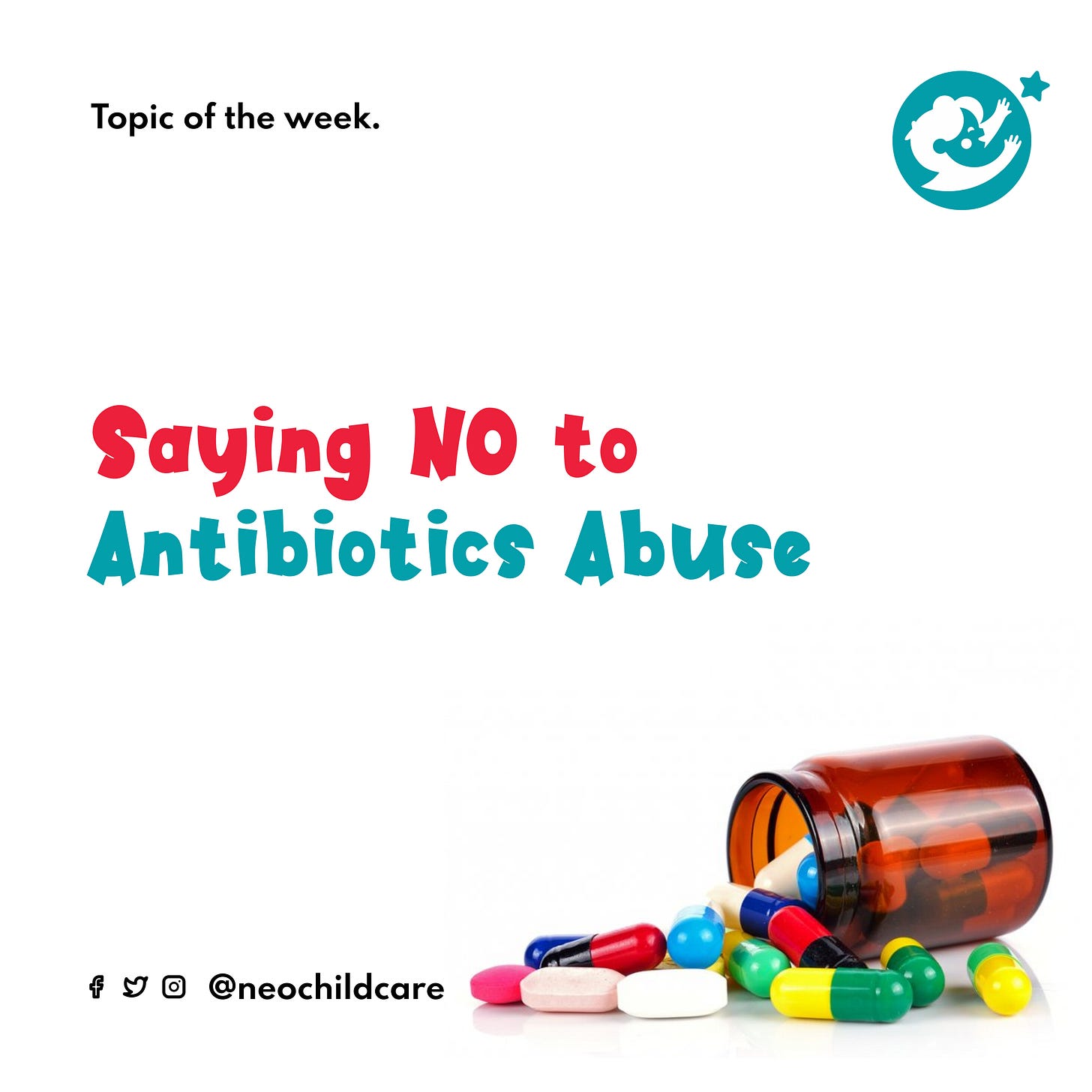Saying No to Antibiotics Abuse
The goal of the campaign is to help people understand the importance of using antibiotics responsibly, and to raise awareness about the growing problem of antibiotic resistance.
Hi there,
This last week was World Antibiotics Awareness Week and this year's theme is "Antibiotics: Handle with Care."
Every day, we rely on antibiotics to fight off infections, but when they're wrongly used, they can lose effectiveness. We're already running out of antibiotics to treat certain infections so it's crucial everyone learns about proper antibiotic use.
What are Antibiotics and why do they matter?
Antibiotics are medicines used to prevent and treat bacterial infections. They work by either killing the bacteria or preventing its growth. They include familiar names like Metronidazole (Flagyl), Penicillin, Tetracycline and Amoxicillin, and can be life-saving when used properly.
What is Antibiotic Resistance and how does it happen?
Antibiotic resistance occurs when bacteria develop the ability to survive exposure to antibiotics. It is the result of changes (mutations) in bacteria that reduce or eliminate the ability of antibiotics to kill bacteria [that were able to successfully kill those bacteria previously] and treat the infections caused.
This means that when an antibiotic is used, all the bacteria that have not mutated are killed, while the antibiotic-resistant ones remain unaffected. These are then able to continue to divide and grow, producing even more that are not affected by the antibiotic. Alarmingly, they can share their resistance directly with others that have not been even exposed to antibiotics yet!
Antibiotic resistance is a serious global health threat. Each year, it causes at least 2 million illnesses and at least 23,000 deaths in the United States alone. Imagine how much more in developing countries like Nigeria where there are inadequate data records.
What can result from misuse of Antibiotics?
It's important to take antibiotics correctly because not doing so can lead to really serious consequences. If you don't take them for the full course of treatment for instance, the bacteria might not be killed off completely and it could come back stronger and tougher to treat.
Also, sharing your prescribed antibiotics with other people might not be effective against their own illness. Different infections can be caused by different bacteria or even viruses despite having similar symptoms. Taking antibiotics when not necessary can make future infections harder to treat and increases the risk of becoming ill from antibiotic-resistant bacteria.
Note: Antibiotic resistance leads to higher medical costs (as more expensive alternatives have to be used), prolonged hospital stays, and increased mortality.
How to prevent Antibiotic Resistance?
Don't give your child antibiotics for coughs, colds and catarrh. These are usually caused by viruses and tend to clear on their own.
Only use antibiotics when prescribed by doctors.
Never demand antibiotics if your doctor says they are not needed..
Never share or use leftover antibiotics and always ensure complete dosages even if you or your child feels better after a few days.
Prevent infections by ensuring they wash their hands, avoid close contact with sick people, and keeping their vaccinations up to date.
Prepare food hygienically, following the WHO Five Keys to Safer Food:
Keeping clean
Separating raw and cooked food
Cooking thoroughly
Keeping food at safe temperatures
Using safe water and raw materials.
Antibiotic resistance is a serious issue, and we need all hands on deck as it's only going to get worse if we don't take action. Remember, antibiotics are most effective when used the least!
Have any questions or health concerns? We are but one click away…
Don't forget to share💜






